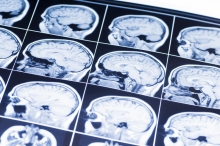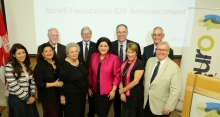Partners agree to share resources, establish steering committee for closer collaboration
On April 20, 2018, Canadian, Chinese and Cuban neuroscience institutes strengthened an existing partnership with the signing of a memorandum of understanding in Chengdu, China.
Partners in the agreement include The Montreal Neurological Institute and Hospital (The Neuro) of McGill University, The Cuban Neuroscience Center, The University of Electronic Sciences and Technology of China, The West China Hospital, and The Tianfu New Area of Chengdu (TFNA).















